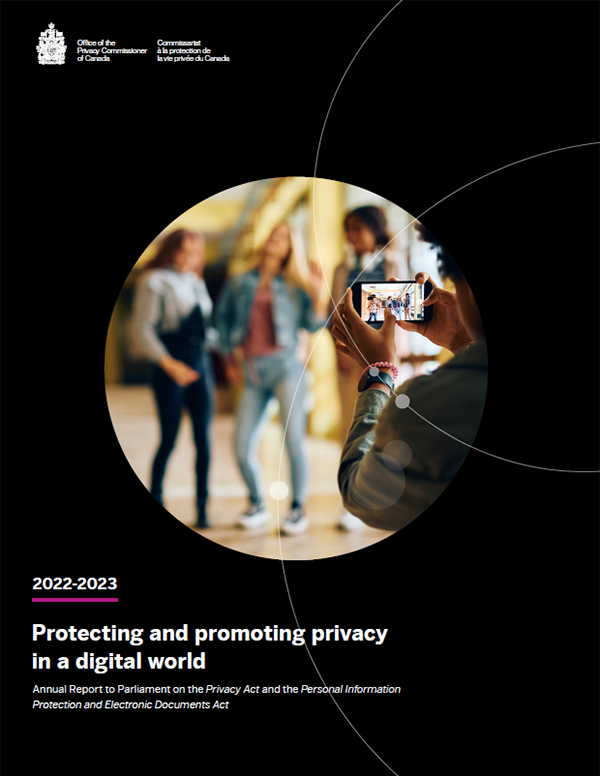사진관리
The Role of Consumer Advocacy Groups in Protecting Data Privacy
:max_bytes(150000):strip_icc()/general-data-protection-regulation-gdpr.asp-final-1b12e02aa4d149b9af4fcd8aec409a89.png)
In the digital era, the significance of preserving the integrity and confidentiality of one's digital footprint cannot be overstated. This section delves into the pivotal activities of certain entities that champion the rights of individuals in the vast realm of digital information management. Their efforts are crucial in maintaining a balance between technological advancement and the fundamental rights of users.
Public interest organizations play a vital role in advocating for robust measures to ensure the security of sensitive data. By scrutinizing policies and regulations, these bodies aim to influence the development of practices that respect and protect the digital privacy of every person. Their work often involves engaging with legislative processes and raising public awareness about the importance of safeguarding personal data against unauthorized access and misuse.
Moreover, these advocates frequently collaborate with technology firms and policymakers to foster environments where ethical considerations are integral to the design and implementation of digital tools. Through their persistent efforts, they contribute to shaping a digital landscape that is not only innovative but also mindful of the ethical implications of data handling.
In conclusion, the activities of these public interest organizations are indispensable in the ongoing battle to secure personal data. Their proactive stance helps in mitigating risks associated with digital vulnerabilities and ensures that the rights of individuals are upheld in the face of ever-evolving technological challenges.
The Emergence of Consumer Advocacy Groups
This section delves into the origins and development of organizations dedicated to safeguarding individual rights in the digital realm. Initially, these entities emerged in response to growing concerns over the misuse of sensitive details by various entities in the online space.
Key Objectives of Information Security Defense
These organizations primarily focus on several critical goals. Firstly, they aim to enhance awareness among users about the importance of keeping their details secure from unauthorized access. Secondly, they strive to influence policy-making to ensure robust legal frameworks are in place to protect these details. Thirdly, they work towards fostering transparency and accountability among tech firms regarding how they handle user details. Lastly, these groups advocate for the implementation of advanced security measures to prevent breaches and unauthorized data sharing.
Through these objectives, organizations play a pivotal role in ensuring that individuals can navigate the digital world with confidence, knowing their sensitive details are protected.
Strategic Approaches to Cybersecurity Awareness
To achieve these goals, these organizations employ a variety of strategies. They conduct extensive public education campaigns to inform users about best practices for maintaining their digital security. Additionally, they collaborate closely with technology companies to advocate for more stringent security protocols and data handling practices. Furthermore, they engage in lobbying efforts to shape legislation that strengthens protections for user details.
Overall, the emergence and activities of these organizations are crucial in the ongoing battle to secure sensitive details in an increasingly digital world.
Key Objectives of Data Privacy Protection

This section delves into the critical goals that underpin efforts to safeguard sensitive details from unauthorized access and misuse. The primary focus is on enhancing awareness and understanding among individuals and organizations about the importance of maintaining the integrity and confidentiality of private data.
- Promotion of Awareness: Efforts are directed towards educating the public about the risks associated with data breaches and the importance of secure practices.
- Enhancement of Security Measures: Advocates push for the implementation of robust security protocols to prevent unauthorized access to sensitive information.
- Advocacy for Transparent Policies: There is a strong emphasis on encouraging organizations to adopt clear and transparent policies regarding the collection, use, and protection of personal data.
- Support for Legislative Frameworks: Advocates work towards influencing the development of laws and regulations that enforce strict data protection standards.
- Encouragement of Ethical Practices: The promotion of ethical data handling practices is crucial, ensuring that data is used responsibly and for legitimate purposes only.
Each of these objectives plays a pivotal role in shaping the landscape of data protection, ensuring that individuals' rights to privacy are upheld and that organizations operate with integrity and responsibility in the digital realm.
Legislative Influence on Personal Information Safeguards
This section delves into the significant impact that policy-making has on the security measures implemented to protect individual details. It explores how governmental regulations and laws play a crucial part in enhancing the safety of sensitive data against potential threats.
- **Development of Laws and Regulations**: Governments worldwide are increasingly crafting laws that mandate stringent data protection practices. These laws often require businesses to adopt specific security protocols to safeguard user details.
- **Enforcement Mechanisms**: Effective enforcement of these laws is critical. This includes penalties for non-compliance, which can range from hefty fines to legal actions, ensuring that entities take data protection seriously.
- **Influence on Business Practices**: Legislative frameworks not only protect data but also influence how businesses operate. They must adapt their internal processes to comply with these regulations, often leading to improved data handling practices.
- **International Collaboration**: Many countries are collaborating to establish unified standards for data protection. This international cooperation ensures that data protection measures are consistent across borders, benefiting users globally.
- **Public Awareness and Education**: Legislation often includes provisions for public education about data security. This helps in building a more informed populace that can make better decisions about their data usage and privacy.
In conclusion, the legislative influence on safeguarding individual details is profound. It not only sets the standards for data protection but also drives the evolution of security practices in the digital realm, ensuring a safer environment for all users.
Legislative Influence on Personal Information Safeguards
This section delves into the significant impact that regulatory frameworks have on the security measures implemented to guard individual details. It explores how laws and policies shape the strategies employed by various entities to ensure the confidentiality and integrity of sensitive records.
Legislative bodies worldwide are increasingly recognizing the necessity of stringent regulations to protect individual details. These regulations not only mandate specific security practices but also enforce penalties for non-compliance, thereby encouraging a culture of vigilance and responsibility among organizations handling such data.
| Region | Key Legislation | Main Provisions |
|---|---|---|
| European Union | General Data Protection Regulation (GDPR) | Enhanced rights for individuals, strict consent requirements, and hefty fines for breaches |
| United States | California Consumer Privacy Act (CCPA) | Right to know about data collected, right to opt-out of data sale, and right to deletion |
| Canada | Personal Information Protection and Electronic Documents Act (PIPEDA) | Consent for collection, use, and disclosure of personal information, and accountability for safeguarding data |
The influence of these legislative measures extends beyond mere compliance; they foster a broader awareness of the importance of safeguarding sensitive records. Companies are compelled to invest in advanced security technologies and practices, thereby enhancing overall security postures.
Moreover, these laws often require transparency and accountability, which in turn build trust among users. This trust is crucial in the digital era, where reliance on online services is ubiquitous. By ensuring that sensitive records are handled responsibly, legislative measures play a pivotal role in shaping the digital landscape and ensuring its sustainability.
In conclusion, legislative influence on the protection of individual details is a critical factor in maintaining the integrity and security of digital transactions. As technology evolves, so too must the legal frameworks that govern it, ensuring that they remain effective in the face of new challenges and threats.
Collaboration with Tech Companies for Enhanced Privacy

This section delves into the strategic partnerships between technology firms and organizations dedicated to safeguarding user confidentiality. By working closely with these tech entities, significant strides can be made in fortifying the security measures that shield sensitive user details from potential breaches.
Key collaborations involve:
- Joint development of advanced encryption protocols to secure communications and transactions.
- Shared efforts in creating user-friendly interfaces that educate users about their security settings and encourage active participation in their own protection.
- Cooperative initiatives to monitor and respond swiftly to emerging threats, ensuring that protective measures are always up-to-date.
These partnerships are crucial in:
- Enhancing the robustness of security features within tech products and services.
- Ensuring that updates and patches are rolled out promptly to address vulnerabilities.
- Fostering a culture of transparency and accountability within the tech industry regarding user confidentiality.
Through these collaborative efforts, the tech sector can play a pivotal role in advancing the cause of user confidentiality, making digital environments safer and more trustworthy for all users.
Public Education Campaigns on Data Security
In this section, we delve into the pivotal efforts made by organizations to enhance the understanding and practices related to safeguarding sensitive digital assets. The focus is on how these initiatives are crucial in fostering a more informed and secure online community.
Educational Outreach Initiatives: One of the primary strategies employed by these entities involves launching comprehensive outreach programs aimed at educating the general populace about the essentials of digital security. These campaigns often utilize a variety of mediums, including social media, public seminars, and interactive workshops, to disseminate vital information effectively.
Awareness and Prevention: The core message of these campaigns revolves around awareness and prevention. By highlighting common threats and vulnerabilities, these initiatives empower individuals to take proactive steps in protecting their digital footprints. Topics such as phishing, malware, and secure password practices are frequently covered, ensuring that participants gain practical knowledge to apply in their daily digital interactions.
Collaboration with Educational Institutions: Another significant aspect of these campaigns is the partnership with schools and universities. By integrating digital security education into the curriculum, these organizations ensure that the next generation is well-equipped with the knowledge and skills necessary to navigate the digital world securely.
Impact Assessment and Continuous Improvement: To gauge the effectiveness of these campaigns, regular assessments are conducted. Feedback from participants and analysis of engagement metrics help in refining the strategies and content of the campaigns. This iterative process ensures that the educational initiatives remain relevant and impactful in the ever-evolving landscape of digital threats.
In conclusion, the role of public education campaigns in enhancing digital security is indispensable. By continuously educating and updating the public on best practices, these initiatives play a crucial role in building a safer digital environment for all.
Role in Shaping International Privacy Standards
In this section, we delve into the significant influence exerted by certain entities on the global framework governing user confidentiality. These organizations play a crucial part in defining and refining the protocols that ensure the integrity and security of individual details across international borders.
Global Harmonization: Efforts to standardize confidentiality measures worldwide are pivotal. These entities collaborate with international bodies to create a cohesive set of rules that apply universally. This harmonization is essential for maintaining consistency in safeguarding user details, regardless of geographical location.
Influence on Policy: Through active engagement with policymakers, these organizations advocate for robust regulations that protect user details. They provide critical insights and recommendations that shape the legislative landscape, ensuring that laws are not only stringent but also practical and enforceable.
Cross-Border Cooperation: The ability to influence and coordinate with various nations is a testament to the effectiveness of these entities. They facilitate dialogue and cooperation among different countries, promoting a unified approach to user confidentiality. This international collaboration is vital in combating the challenges posed by the digital era, where data breaches and unauthorized access transcend national boundaries.
Educational Initiatives: Beyond policy influence, these organizations also spearhead educational campaigns aimed at raising awareness about the importance of user confidentiality. By educating both the public and private sectors, they foster a culture of vigilance and respect for user details, thereby enhancing the overall security of digital platforms.
In conclusion, the role of these entities in shaping international standards for user confidentiality is indispensable. Their proactive stance and strategic initiatives not only bolster the protection of user details but also enhance trust in digital services globally. As the digital landscape continues to evolve, their continued involvement and influence will be crucial in maintaining and improving these standards.
Impact of Advocacy on Consumer Trust in Digital Services

This section delves into the profound influence exerted by entities dedicated to safeguarding individual rights in the digital realm. Their efforts significantly shape public confidence in online platforms and services.
The challenges these entities face are multifaceted and evolving, requiring continuous adaptation and strategic responses. Here are some of the primary obstacles they encounter:
- Adapting to rapid technological advancements, which often outpace regulatory frameworks and advocacy strategies.
- Balancing the need for transparency and user control with the operational requirements of businesses, which can sometimes conflict with privacy protections.
- Overcoming public apathy or lack of awareness regarding the importance of digital security and privacy, necessitating ongoing educational campaigns.
- Navigating complex international laws and regulations, which vary widely and can complicate efforts to establish consistent global standards.
- Funding and resource constraints, which limit the scope and impact of advocacy efforts, especially in comparison to the resources available to large tech corporations.
Each of these challenges requires a nuanced approach, blending legal expertise, public engagement, and strategic partnerships to effectively address and mitigate the risks to consumer trust in digital services.
Challenges Faced by Advocacy Organizations in the Digital Era
In this section, we delve into the multifaceted obstacles that entities dedicated to safeguarding individual rights encounter in the rapidly evolving digital landscape. These challenges are pivotal in understanding the future trajectory of these organizations' efforts.
| Challenge | Description |
|---|---|
| Technological Complexity | The ever-evolving nature of technology presents a significant hurdle, requiring constant adaptation and education to effectively address and mitigate risks associated with digital platforms. |
| Global Regulatory Divergence | Differing legal frameworks across jurisdictions complicate the standardization of protection measures, necessitating a nuanced approach to advocacy that respects regional differences while striving for universal standards. |
| Public Awareness and Engagement | Increasing public understanding of digital rights and encouraging active participation in advocacy efforts remains a critical yet challenging task, given the complexity of the issues and the prevalence of misinformation. |
| Collaboration with Industry | Establishing effective partnerships with tech corporations, which often have conflicting interests, requires strategic negotiation and a clear articulation of mutual benefits for enhanced user safety. |
| Resource Allocation | Securing adequate funding and resources to sustain operations and innovation in advocacy strategies is a persistent challenge, particularly in the face of competing priorities and limited public funding. |
As we look to the future, these challenges underscore the need for innovative strategies and robust international cooperation to ensure that the rights of individuals are upheld in the digital realm. The ongoing evolution of advocacy methods and the adaptation to new technologies will be crucial in shaping a secure and equitable digital future.
Future Directions for Consumer Data Privacy Advocacy

As we navigate through the evolving landscape of digital interactions, the imperative to safeguard individual rights in the virtual realm becomes increasingly critical. This section delves into potential pathways that could fortify the defense mechanisms against unauthorized access and misuse of sensitive details. It explores how ongoing efforts might adapt to meet the challenges of a continuously changing digital environment.
One pivotal avenue for advancement lies in the enhancement of technological tools designed to shield user details. Innovations in encryption and anonymization techniques could provide stronger barriers against data breaches. Additionally, fostering a culture of transparency and accountability among service providers is essential. This involves encouraging companies to adopt clearer policies regarding the collection, use, and sharing of user data.
Legislative frameworks also play a crucial role in shaping the future of data protection. There is a growing need for harmonized international laws that address the cross-border nature of digital data. Such frameworks should be robust enough to adapt to technological advancements while ensuring that they do not stifle innovation.
Education and awareness campaigns are another cornerstone for future strategies. By empowering individuals with knowledge about best practices for managing their digital footprints, these campaigns can significantly enhance personal vigilance. This includes teaching users about the importance of secure passwords, recognizing phishing attempts, and understanding the implications of consenting to data usage.
Collaboration between various stakeholders, including tech firms, regulatory bodies, and civil society organizations, is vital. This synergy can lead to more effective solutions and a unified front against threats to digital security. By working together, these entities can develop comprehensive strategies that not only protect user data but also enhance trust in digital platforms.
Lastly, monitoring and adapting to emerging trends in cyber threats is essential. As adversaries become more sophisticated, so must the defenses. Continuous research and development in cybersecurity are necessary to stay ahead of potential vulnerabilities and to ensure that the protections in place are as robust as possible.
In conclusion, the future of safeguarding user details in the digital sphere requires a multifaceted approach that combines technological innovation, legislative refinement, educational outreach, and collaborative efforts. By focusing Medium's guide on data removal these areas, we can better prepare for the challenges ahead and ensure a safer digital environment for all users.
업무 시간
월 ~ 금 (주말,공휴일 휴무)
10:00~17:00
월 ~ 금 (주말,공휴일 휴무)
현지시간 8:00 ~ 18:00
상담·예약 문의
한국
02-324-2136
이탈리아
+39-328-962-8828
프랑스
+33-07-49-34-09-14
![]() 카카오톡 플러스친구 우노트래블
카카오톡 플러스친구 우노트래블
![]() 카카오톡 ID (한국 사무실) UNOTRAVEL1
카카오톡 ID (한국 사무실) UNOTRAVEL1
 TOP
TOP




